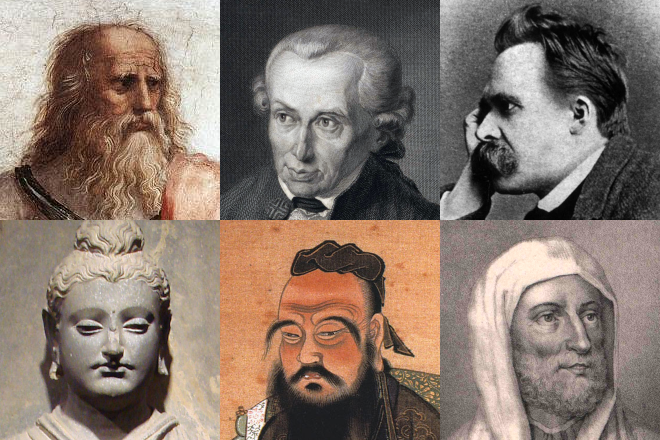Philosophy 101
- Introduction to Philosophy
- Ancient Greek Philosophy
- Renaissance and Enlightenment Philosophy
- Modern Philosophy
- American Philosophy
- Existentialism and Phenomenology
- Analytic Philosophy
- Contemporary and Postmodern Philosophy
- Eastern Philosophy
- Philosophy of Religion
- Philosophy of Science
Introduction to Philosophy
Major Branches of Philosophy

Study of the truths and principles of being, knowledge, or conduct.
Philosophy, a Greek word meaning "love of wisdom," is a broad and complex field of study. It seeks to answer fundamental questions about existence, knowledge, values, reason, and more. To make the study of philosophy more manageable, it is often divided into several major branches. Each branch focuses on a specific set of questions or topics. Here are the major branches of philosophy:
Metaphysics
Metaphysics is the branch of philosophy that explores the fundamental nature of reality, including the relationship between mind and matter, substance and attribute, potentiality and actuality. It asks questions like: What is existence? What is the nature of reality? Is reality ultimately reducible to one substance or many?
Epistemology
Epistemology is the study of knowledge and belief. It seeks to understand the nature and scope of knowledge, the distinction between knowledge and belief, and the conditions that lead to the formation of knowledge. Key questions in epistemology include: What is knowledge? How is knowledge acquired? What do people know? How do we know what we know?
Ethics
Ethics, also known as moral philosophy, is the branch of philosophy that involves systematizing, defending, and recommending concepts of right and wrong conduct. It addresses questions such as: What is the best way for people to live? What actions are right or wrong in particular circumstances? What is the nature of moral obligation?
Aesthetics
Aesthetics is the branch of philosophy that explores the nature of art, beauty, and taste. It seeks to understand how individuals perceive, appreciate, and enjoy art and beauty. Key questions in aesthetics include: What is art? What is beauty? Is there a standard of taste? Is art meaningful?
Logic
Logic is the branch of philosophy that seeks to ensure that our thinking is clear, orderly, and consistent. It involves the systematic study of the forms of inference, the relations that lead to the acceptance of one proposition, the conclusion, on the basis of a set of other propositions, the premises. Key questions in logic include: What constitutes good reasoning? How does logical reasoning differ from other types of reasoning?
Each of these branches offers a unique perspective on the world and our place in it. They provide us with tools to examine, question, and understand our experiences in a deeper way. By studying these branches of philosophy, we can gain a better understanding of ourselves and the world around us.